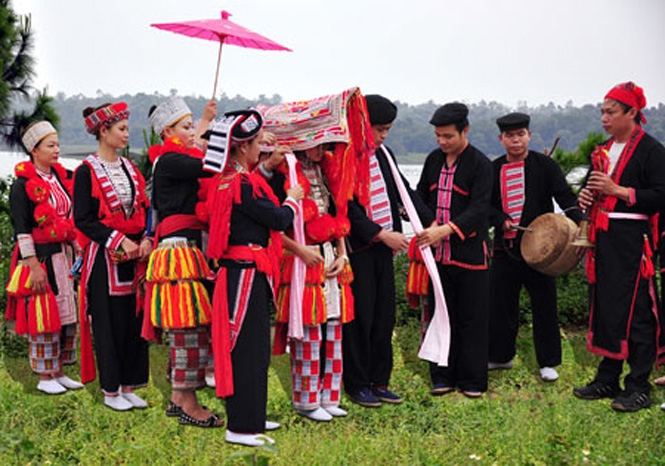This custom is practiced in families without a son in its lineage. The son-in-law has the same responsibilities as the son of his wife’s family such as taking care of his wife's parents and worshiping their ancestors.

A wedding of the Red Dao people.
This custom has two forms, including living with in-laws for the rest of his life or living under a covenant between the two families. The son-in-law need not necessarily be a Dao man, but can be possibly from another ethnic group.
For the life-long living form (“tzau lang tang”), the man will not return to his parents' house and is considered the main member of his wife's family. He can even change his surname to his wife's.
Meanwhile, a live-in son-in-law under a convenant (“tzau lang duon”) can stay in his wife's family home for 3-5 years or longer. After paying full wedding presents to his wife’s family, the man will take his wife and children to return to his parents’ house.
This is a custom with profound human value because it helps the families maintain and develop stably though the generations as well as gradually eliminating male chauvinism.

Comment
Print